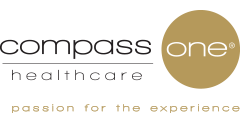
Raising the Safety Standards in Ambulatory Surgery Centers
Ambulatory surgical centers (ASC) have dramatically increased in number as more of the U.S. population undergoes routine surgeries to take care of common health issues. According to a 2019 report from MarketWatch, ASCs have a 59% percent market share of surgeries in the United States and a projected global value of nearly $120 million by the end of 2026.
ASCs offer reasonably healthy patients the opportunity to get their issue resolved without the need to undergo inpatient surgery in a setting that can feel impersonal and be very expensive. Ambulatory surgery centers may also decrease the risk of adverse patient outcomes. However, even as the ASC model becomes more prevalent, this setting may carry risks for some patients.
Healthcare organizations that are considering expanding their presence in their communities by adding additional ASCs should thoroughly review the benefits and potential patient safety concerns their patients will have. Here's a look at the ambulatory surgery center of today, why they're gaining in popularity, and the risks that physicians and patients face at an ASC.
What Is an Ambulatory Surgery Center (ASC)?
Ambulatory surgery centers, also known as surgicenters, are highly regulated healthcare facilities that are equipped and staffed to handle same-day outpatient surgeries and preventive procedures that would otherwise be performed in a hospital setting. Lower cost, convenience, and the ability to achieve the same positive patient outcomes that can be obtained at a hospital have all contributed to the increase in ambulatory surgical centers.
What Kinds of Procedures Are Typically Performed at an ASC?
A wide variety of procedures are typically performed at an ASC. Most procedures performed at ASCs are treatments for chronic conditions and quick procedures that don't require hospitalization afterward. They include surgeries approved by private insurance, Medicare, and elective procedures like plastic surgery. Some of the most common procedures performed at an ASC include:
- Ear, nose, and throat procedures
- Orthopedic surgery
- Plastic surgery
- Eye surgery
- Urology procedures
- Gastrointestinal procedures
Ambulatory surgery centers cannot accommodate patients on an emergency basis and are not designed to handle the needs and requirements of a patient in an emergency.
Why Are ASCs Becoming More Popular With Physicians and Patients?
Flexibility for Physicians and Surgeons
Physicians and surgeons enjoy the additional flexibility and control offered in an ambulatory surgery center. The staff manages fewer patients for preoperative preparation than they would in a hospital setting. The surgeon also usually has more control over the tools, materials, and medical devices he or she uses in the procedure and can readily prevent a last-minute substitution when necessary. With fewer patients in recovery, medical staff can monitor the patient closely and intervene quickly in the event of a complication.
A Personalized Care Environment for Patients
Patients also appreciate the personalized care they receive at an ASC. They often report feeling a stronger connection with their physician because fewer barriers prevent direct access. This more intimate setting eases patient-to-clinical staff communication, ultimately creating a perception that the patient received a higher quality of care and concern from the staff.
Cost Savings
Patients and physicians alike most often cite cost savings as an advantage of the ASC model. According to research published in the journal Advancing Surgical Care, ASCs reduce U.S. healthcare costs by more than $38 billion a year. Over $5 billion of that number is directly attributable to lower deductible and coinsurance payments for patients.
Patients frequently have out-of-pocket costs for their medical care and will subsequently avoid or delay having a hospital-based procedure. The cost for the same procedure at an ASC will almost always be lower than in a hospital setting.
What Are Some of the Top Safety Issues ASCs Face?
Are surgery centers safe? As ASCs continue increasing in popularity, maintaining safety and quality should stay top of mind. Here are a few areas that deserve special attention:
Infection Control and Prevention
Even though the risk of developing a surgical site infection (SSI) at an ASC tends to be lower than at a hospital, results from a recent U.S. Department of Health and Human Services' Office of Inspector General (OIG) report found that infection control remains a top issue for some ambulatory surgery centers. During the study, states cited 55% of all nondeemed ASCs with one or more infection control deficiency, like ensuring that surgical equipment is sanitized correctly, for example.
Off-site surgery centers' approachable and casual feel are part of what makes them so appealing to patients and staff; however, there should be nothing casual about an ASC's infection control and prevention approach. "Office grade" clean isn't good enough. The Center for Disease Control (CDC) recommends regularly contracting associates or teams who specialize in infection prevention. These individuals can manage the facility's infection prevention program and help develop policies tailored to the facility.
The right EVS partner can help you address the reality and perception of clean to keep your patients and staff safe.
Emergency Handling Procedures
As ambulatory surgery centers become more popular, they expand the services they offer to cover more patient needs. However, as they grow, they expose themselves to risks that are more commonly seen at the hospital level. This doesn't mean that ASCs will lose their status as a quality alternative to surgery in a hospital setting, but it does mean that these facilities need to recognize the increased risk and take steps to minimize their potential for occurrence.
Ambulatory surgery centers must maintain a patient transfer agreement with a local hospital in case of emergency to comply with federal and state regulations across the U.S. This agreement is a safety net for a patient who is undergoing a surgical procedure at an ASC, and failure to maintain the agreement can result in an adverse outcome for the patient.
While ASCs can and do keep resuscitation equipment at hand, sometimes a patient presents with a problem that far outstrips the facility's ability to handle the situation. An emergency care agreement with a nearby hospital can save a patient's life when staff and equipment at the ASC are unable to do so.
The core reason for the existence of ASCs is the ability to perform routine surgeries in an outpatient setting and offer a high level of patient service before, during, and after the surgery. Expanding upon the range of the surgeries provided is a natural step in the growth of the ASC, but the expansion needs to be done in a safe and measured fashion. Some ASCs begin offering complex surgeries only to demonstrate that they are not well-equipped to handle an emergency.
Conflict of Interest
Hospitals are increasingly entering into ASC ventures, ASCs are predominately owned by physicians and operate independently of hospitals. Federal law allows physicians to refer patients to their own surgery centers, which means more significant financial incentives. Some experts worry that these financial incentives, especially for more complicated procedures, will lead physicians to approve high-risk patients for off-site surgery because of the financial rewards. While this is in no way reflective of all ASCs, all owners should enforce a rigorous patient selection process.
A Model for Surgeries of the Future
The ASC is here to stay as an alternative to the hospital surgical suite. As the role of the ASC expands, so must oversight of the services it provides to maintain its status as a low-cost, full-service outpatient surgical center. Maintaining balance, and infectious disease oversight will keep the ASC well-positioned for the decades to come.


